Outpatient programs provide an array of options tailored to individual needs, including:
Outpatient mental health treatment provides the flexibility to schedule appointments around daily obligations and responsibilities. This empowers people to prioritize their mental health while maintaining their autonomy and independence.
Outpatient mental health treatment encompasses a flexible and accessible approach. This allows treatment plans to address a range of mental health concerns while clients maintain their daily routines.
During residential or inpatient treatment, clients must stay on site after their treatment is finished. Outpatient care allows them to attend therapy sessions, appointments, and support groups on a part-time basis. After treatment is finished, they may return home.
This approach provides people with the support they need to manage their mental health challenges. At the same time, it provides them with the flexibility to continue to engage in work, school, and other activities.
Treatment modalities in outpatient mental health care encompass a diverse range of evidence-based approaches. These are aimed at addressing each person’s unique mental health concerns and promoting well-being.
At Skyline Recovery Center, our modalities are tailored to meet the unique needs and goals of each client, fostering a holistic approach to treatment.
Some key treatment modalities used in outpatient mental health treatment include:
CBT is a widely recognized and evidence-based therapeutic approach used in outpatient mental health treatment. It operates on the idea that thoughts and behaviors are interconnected. CBT aims to identify negative patterns that contribute to distress.
In CBT, clients work with their therapist to examine the relationship between their thoughts, emotions, and actions.
Through structured exercises and interventions, they learn to:
Medication management involves the prescription and monitoring of psychiatric medications. These work to reduce symptoms of mental health disorders such as:
Psychiatrists or other medical professionals assess the need for medication. They then prescribe appropriate medications to help with symptoms.
At Skyline Recovery Center, we pride ourselves on continuity of care. Because of this, our team of medical professionals will continue to monitor their effectiveness and side effects over time. If needed, adjustments to the prescription will be made to ensure a safe, healthy recovery.
All group therapy sessions are led by a trained therapist. These sessions may focus on specific topics such as stress management, interpersonal skills, or coping with trauma.
Family therapy can be particularly beneficial for people with mental health concerns that impact their relationships and family dynamics. It can be essential for not only fostering relationships but repairing them.
In addition to traditional therapy modalities, outpatient mental health treatment can include holistic wellness practices such as:
At Skyline Recovery Center, we are dedicated to treating the entire person, not just their symptoms. These holistic practices promote relaxation, stress reduction, self-expression, and emotional well-being.
A person-centered approach is a fundamental principle in outpatient mental health care. It emphasizes tailoring treatment plans to each person’s unique needs, preferences, and goals.
This approach recognizes that every person is different. At Skyline Recovery Center, we believe there is no one-size-fits-all solution to mental health challenges.
Instead, therapists and mental health professionals work with clients to develop personalized goals and strategies. We believe these should resonate with a person’s values, beliefs, and experiences.
Outpatient mental health treatment is used to address a wide range of psychological and emotional concerns. At SRC, we strive to provide support, intervention, and guidance for people experiencing various mental health challenges.
Some of the conditions commonly treated through outpatient mental health treatment include:
In 2021, 21.0 million adults in the United States reported experiencing at least one major depressive episode. Outpatient mental health treatment is vital for addressing depression.
Medication management by psychiatrists stabilizes mood and alleviates symptoms. Regular monitoring and adjustment ensure optimal treatment outcomes. Other treatments, like support groups and psychoeducation, can help provide people with vital tools and resources.
At Skyline Recovery Center, our professional team is trained in a variety of approaches and methods. These are tailored to each client, helping target their unique concerns. Some examples of anxiety treatments include CBT, relaxation techniques, and exposure therapy.
As people reintegrate back into their daily routine, outpatient care can provide vital treatment. Skyline Recovery Center offers a variety of treatments tailored for SUD, including:
In outpatient care, clients with eating disorders will receive various treatments to promote healthy eating habits and body image. This includes therapy, nutritional counseling, and support groups.
Outpatient mental health services help people with bipolar disorder:
Outpatient therapy provides support and skills training for people with personality disorders such as borderline personality disorder. The treatments provided help clients manage emotional dysregulation and improve interpersonal relationships.
Outpatient counseling and therapy help people cope with grief and loss. Healthcare professionals provide support and strategies to navigate the mourning process. In time, this can help people adjust to life changes.
Some of the benefits associated with stress management include:
Outpatient therapy offers couples counseling and family therapy. These work to:
Outpatient mental health treatment offers numerous benefits for those seeking support and assistance. Some of the key benefits include:
Outpatient mental health services are more accessible and flexible compared to inpatient or residential treatment options.
With SRC’s outpatient options, clients can receive the care they need and then return home. This allows them to maintain their:
When a person receives care through our outpatient options, they can continue living at home. This allows them to engage in their regular activities and fulfill their daily responsibilities without sacrificing care.
Outpatient mental health treatment minimizes disruptions to a person’s daily life. This helps maintain a sense of normalcy and stability during the treatment process.
Outpatient mental health treatment offers personalized and individualized care. This is tailored to each person’s unique needs, preferences, and goals.
Therapists work closely with clients to develop customized treatment plans. Together, they can create a plan that addresses their specific concerns and challenges.
Outpatient mental health services support continuity of care by:
Clients have the opportunity to develop long-term therapeutic relationships with their providers. This allows them to receive consistent support throughout their recovery journey.
Outpatient treatment centers often offer opportunities for clients to connect with others. This includes those who are facing similar challenges through:
This sense of community support can provide encouragement, validation, and a sense of belonging.
Outpatient mental health treatment empowers people to take an active role in their own recovery process.
Skyline Recovery Center stands as a trusted leader in outpatient mental health treatment. We offer a comprehensive array of treatments, including:
Our goal is to address the diverse needs of each person who walks through our door. We strive to provide clients with the tools and support necessary for their mental health journey.
Skyline Recovery Center is proud to boast a team of seasoned professionals. Our team consists of highly skilled therapists, psychologists, and psychiatric providers. Each member of our staff is dedicated to delivering exceptional care in outpatient mental health treatment.
Whether you’re seeking individual therapy or additional treatments, you can trust that you’re in capable hands at Skyline Recovery Center. Our experienced professionals are here to guide you through your mental health journey with empathy, expertise, and unwavering support.
Skyline Recovery Center embraces a collaborative care approach in our outpatient mental health treatment programs. We understand that each person’s journey to mental wellness is unique. Because of this, we believe in partnering with our clients every step of the way.
Our collaborative care approach involves working with clients to develop a deep understanding of their experiences, challenges, and aspirations. By involving clients in the decision-making process, we ensure that their voices are heard.
At Skyline Recovery Center, collaboration is at the heart of everything we do. We are committed to partnering with our clients to provide compassionate, comprehensive, and effective care that empowers them to achieve their mental health goals and live fulfilling lives.
At Skyline Recovery Center, we recognize the importance of outpatient mental health treatment. We understand that outpatient options are essential in providing accessible, flexible, and effective care.
Our outpatient programs offer a range of evidence-based therapies. This includes medication management, support groups, and holistic wellness activities tailored to your unique needs. Our individualized plans and collaborative care place you at the heart of your healthcare journey.



